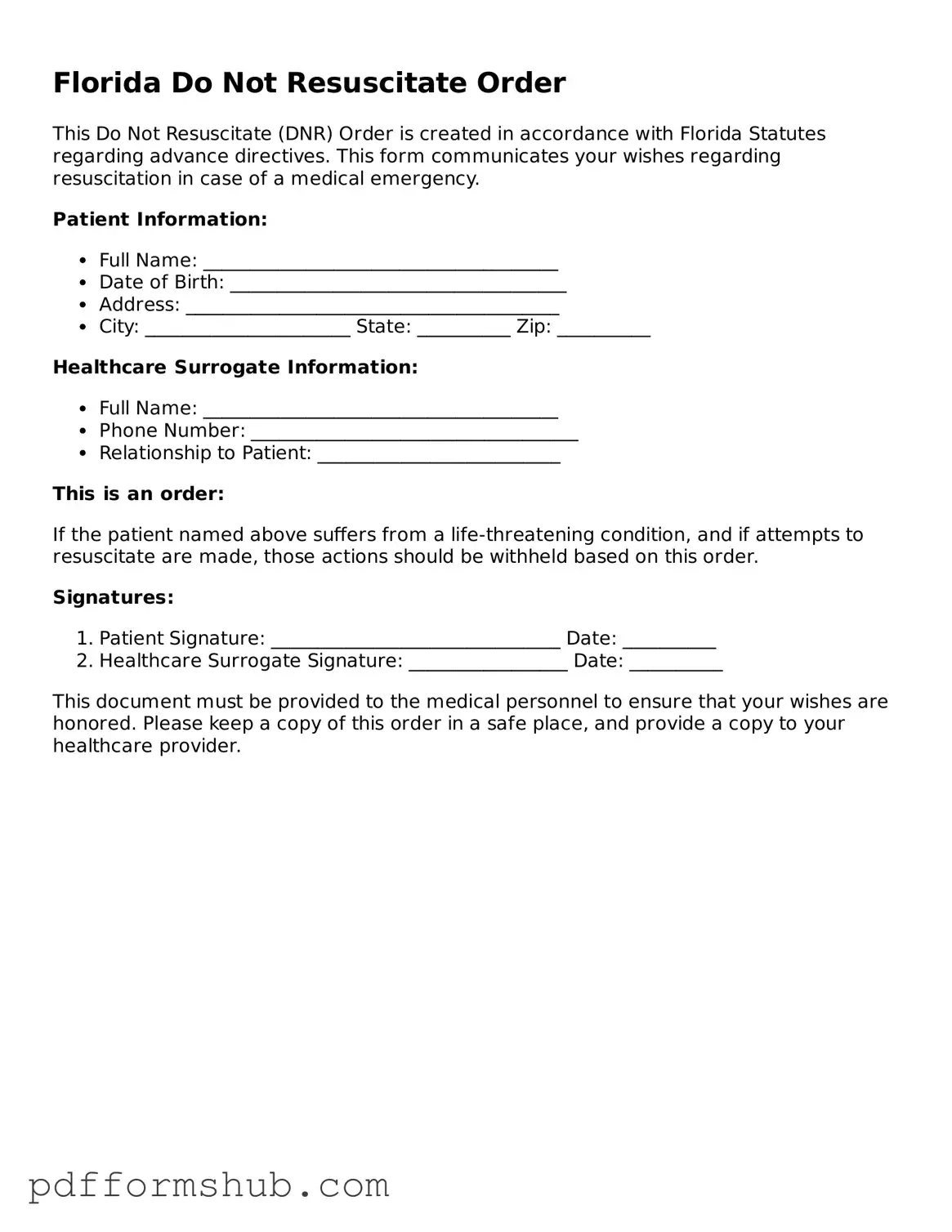Attorney-Verified Do Not Resuscitate Order Form for Florida State
A Florida Do Not Resuscitate Order (DNRO) is a legal document that allows individuals to express their wishes regarding resuscitation efforts in the event of a medical emergency. This form is particularly significant for those who wish to avoid aggressive life-saving measures when facing terminal illness or severe medical conditions. Understanding how to properly complete and implement this order is crucial for ensuring that one's healthcare preferences are honored.
Take the first step in making your healthcare wishes known by filling out the form. Click the button below to get started.
Customize Form

Attorney-Verified Do Not Resuscitate Order Form for Florida State
Customize Form

Customize Form
or
Free PDF Form
Short deadline? Complete this form now
Complete Do Not Resuscitate Order online without printing hassles.